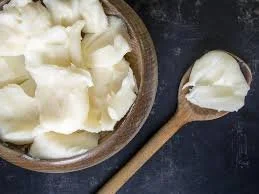The growing diabetes epidemic has spawned a whole new industry of alternative sweeteners known as sugar alcohols. Consumers typically view them favorably because they are not artificially derived or chemically manufactured like aspartame or sucralose. But are the worth the hype?
Read MoreNowadays, when it comes to oysters, people seem to either love them, hate them or are nervous to try them. Some people worry that these filter feeders might be a source of toxins. The question that arises is - are oysters good for you?
Read MoreYou might believe that a vegan or plant-based diet would help you manage your weight and resolve any nagging health problems. You hear less about the health problems that can occur from a strict plant-based diet that excludes all animal products.
Read MoreWhat if the plants you are eating actually contribute to inflammation, digestive distress and hormonal dysfunction? What if these “plant foods” are the leading cause of systemic inflammation, leaky gut and a primary factor in the rise of autoimmune disease?
Read MoreSetting New Year’s resolutions always sounds great but how often do you actually keep your New Year’s resolutions past January? Not too often, apparently with research fiding a mere only 12% success rate. What was the secret to being successful?
Read MoreSo many diet programs entice compliance by allowing cheat days or a cheat meal to reward sticking to the plan for a certain period of time. It follows that those following a carnivore diet, might want to do the same from time to time.
Read MoreVitamin D is a steroid hormone made in the skin as a response to ultraviolet light. It can also be consumed through diet to varying degrees as well as in supplement form. When skin is exposed to light, specifically the UVB spectrum of ultraviolet light (outdoor sunshine at the optimal time of day and year), it synthesizes vitamin D from a cholesterol precursor.
Read MoreStomach acid is necessary for digestion and absorption of protein, vitamin B12 and several minerals. When your body is no longer able to break down and absorb these nutrients, you end up with undigested food and nutritional deficiencies.
Read MoreOxalates are compounds that naturally exist in many food items often considered healthy including spinach and almonds. The are indigestible and can cause digestive issues. Oxalates often give foods their bitter taste and are thought to be compounds meant to protect the plant from predators.
Read MoreWhen you hear the term “healthy fats,” most people often immediately think this refers to the plant-based fats touted by dietary plans such as the Mediterranean diet. These include fats such as olive oil, avocados and walnuts—but excludes animal fats. While they have not typically been equated with the same healthfulness, animal fats are, in fact, nutritious foods that are necessary in the diet.
Read MoreMuscles help you move, lift and carry and increased muscle mass plays a vital role in keeping you healthy. It can protect you against disease, fight obesity, maintain bone strength, and increase your resilience to stress and illness as we get older.
Read MoreFat loss is not as simple as eating healthy and following an exercise program. The next time you come across a trending fat loss tip, pause for a moment, and do your due diligence to find out the truth. It is equally as important to analyze your current situation to determine if this particular weight loss strategy will work for you.
Read MoreIt’s completely normal to have less frequent bowel movements on a fiber-free and/or carnivore diet. Meat takes longer to digest and assimilate than plant foods do. As the body adapts to a fiber-free diet, things do settle down result in a regular routine around bowel movements. They should be pleasant, regular, predictable, yet less frequent.
Read MoreCollagen is an important part of the body, especially with conditions that tend to arise with increasing age. These include decreasing bone density and joint health, and arthritis.
Read MoreTry hard as you might to eat well, most people can’t figure out exactly what ‘eating healthy’ even means anymore. Here are some of my takes on the nutrition questions I get asked most. Perhaps you can use some of these to craft your own, personal, well balanced nutrition plan– the one that works best for YOU!
Read More



















